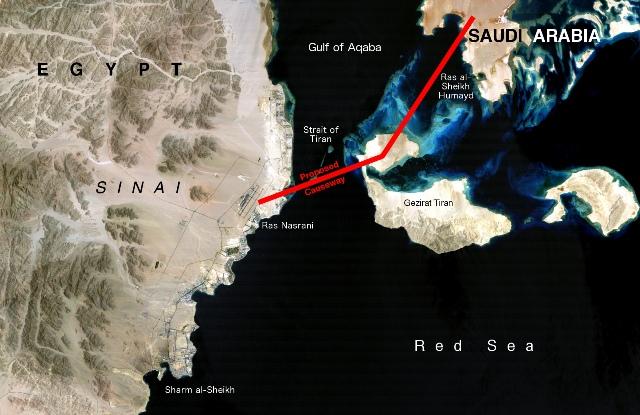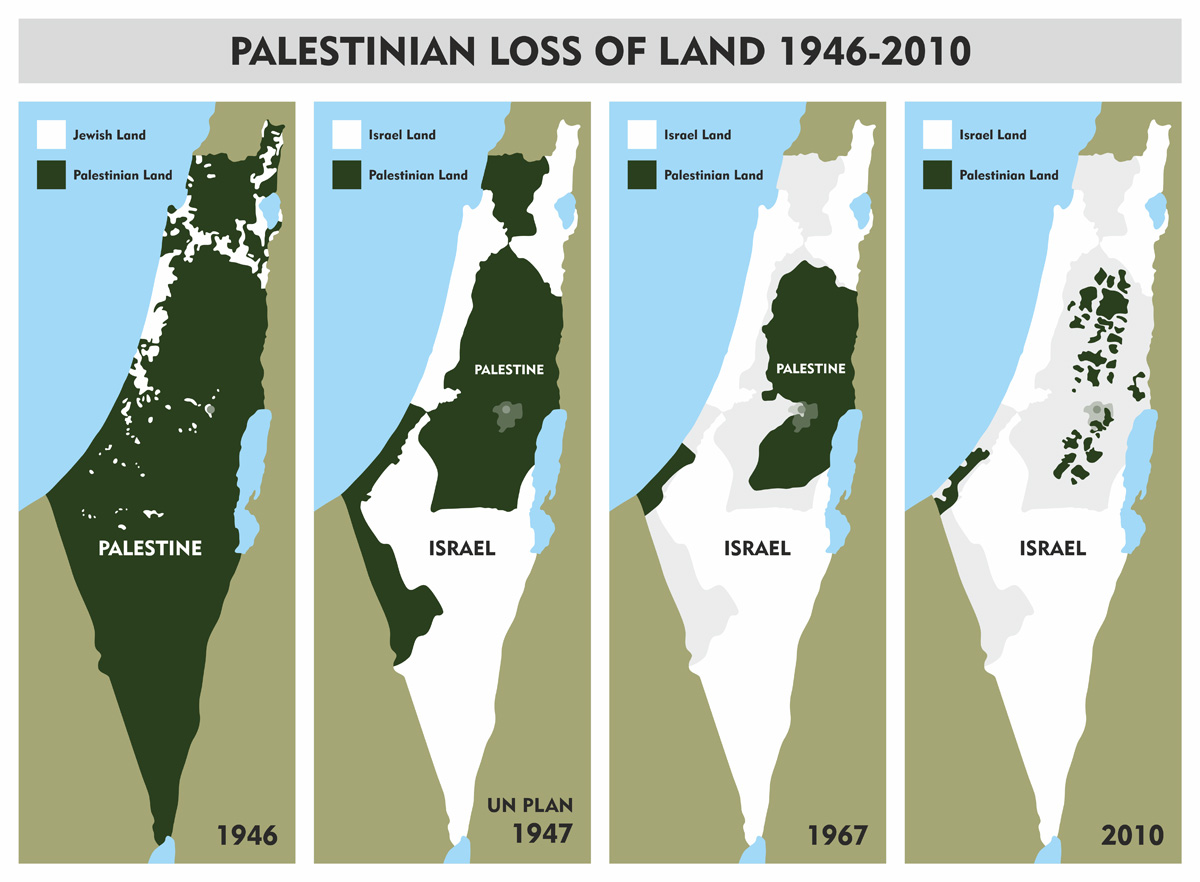By Margaret Vergolia
After 11 bilateral diplomatic meetings during the last six years and billions of Saudi petrodollars poured into Egypt’s fragile economy during the current persidency of Abdel Fattah al-Sisi, Saudi Arabia and Egypt reached on April 9 a resolution on the demarcation of their maritime boundaries, putting officially two uninhabited islands in a strategic corner of the Red Sea under Saudi control.
By transferring sovereignty of Tiran and Sanafir – which straddle the strategic Straits of Tiran at the mouth of the Gulf of Aqaba – Cairo was promised even more aid and investments by the Saudis, including a Red Sea bridge proposal to link the two Sunni Muslim countries and thus to further strengthen their strategic partnership in the wider region.
But the announcement sparked furious protests in Egypt. “Sisi out” and “We own the land” chanted angry protesters in Cairo and Alexandria on Friday, arguing that under the Egyptian Constitution the president has no authority to give up territory. Dozens were arrested.
“We did not surrender our rights but we restored the rights of others,” Mr Sisi said publicly defending his decision, asserting that Tiran and Sanafir always belonged to the Saudis and that the were only put under Egyptian control in 1950 amid concerns that Israel might seize them.
Indeed Israel took control of the islands in the 1967 Six-Day War and returned them to Egypt in 1982, after the full implementation of the Camp David Accords. As part of the Israel-Egypt peace agreement, a US-led force (MFO) set up ever since an observation post on the island of Tiran, in order to ensure the freedom of movement of Israeli vessels through the strategic straits.
Three and a half decades later, Tiran and Sanafir have now a new story to tell by shedding light on Israel’s secret relations with Saudi Arabia: two countries that have no formal ties, but gradually build a strategic dialogue over regional issues, particularly concerning the growing regional influence of Shia-led Iran.
According to Israeli Defense Minister Moshe Yaalon Riyadh not only was the transfer plan of the two islands prior approved by Israel and the United States, but also Saudis gave written assurances to Tel Aviv that there will be no implications for Israeli shipping from Israel’s only Red Sea port in Eilat through the Strait of Tiran.
“There is no doubt that the relationship between Egypt and Israel is at a higher level than ever before. It is also clear that Saudi Arabia has many interests that are linked to Israeli interests”, noted Yaakov Amidror, a former director of Israel’s National Security Council, speaking to Israel’s Army Radio. “I would also add Jordan to this. I think that there are great common interests here, which serve as a good basis for various relationships,” he said.
“We have an interest in expanding the cooperation in the Sunni axis, which is struggling against the radical axis headed by Iran,” told Tzachi Hanegbi, the chairman of the Foreign Affairs and Defense Committee and a close confidant of Prime Minister Benjamin Netanyahu, according to Reuters. “The more the Saudis, and the Gulf states in general, connect to the countries with which we are at peace and create with them a strategic front against ISIS, Iran, Hezbollah, against all the players that are our actual enemies, ultimately the effect will be unifying and not weakening.”
Writing in “Al-Monitor”, senior columnist and political analyst for Israeli newspapers Βen Caspit, notes that the Egyptian transfer of the islands to Saudi Arabia could even set a precedent for regional land swaps, as part of future efforts to resolve the Israeli-Palestinian conflict.
“Egypt would enlarge Gaza southward and allow the Gaza Strip’s Palestinians more open space and breathing room. In exchange for this territory, Egypt would receive from Israel a narrow strip the length of the borderline between the two countries, the Israeli Negev desert region from Egyptian Sinai”, he writes. “The Palestinians, in contrast, would transfer the West Bank settlement blocs to Israel. Jordan could also join such an initiative; it could contribute territories of its own and receive others in exchange.”
In this context he describes the reconciliation attempts between Israel and Turkey as imponderable. Citing a highly placed Israeli official who spoke on condition of anonymity, Βen Caspit writes that “the Egyptians don’t want to see the Turks in the Gaza Strip”. “In the current state of affairs”, he concludes, “it is possible that the Turks and Israelis will accept the fact that they can’t come to a full agreement, and will settle for a partial rapprochement: an exchange of ambassadors, limited warming of relations and nothing more.”
All this “divide and rule” tactics and even more are expected to be thoroughly discussed during US President Barack Obama’s visit this week in Saudi Arabia. At the top of his agenda are issues like counterterrorism and bolstering ballistic missile defense systems, as well as the global economy, given the sharp drop in oil prices. Accompanied by his defense chief Ashton Carter, Obama will meet Saudi King Salman on Wednesday and then he will attend a summit with other leaders of the Gulf Cooperation Council on Thursday, before he leaves for his 5-day trip to Europe.











